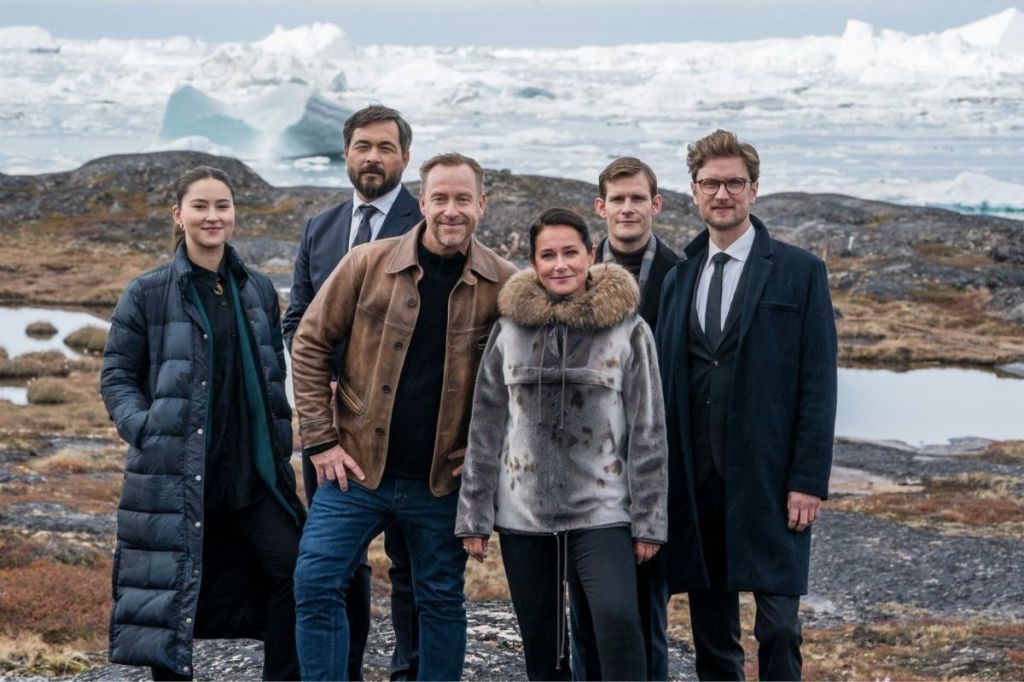
Did you know that the biggest crime festival in Northern Europe takes place every year in Horsens, Denmark? Its name is Krimimessen, and since 2007, it’s been held at the old state penitentiary called Fængslet.
This year the crime festival will take place on April 5 and 6, 2014.
The crime festival gives you the opportunity to witness interviews with authors – some even delivered as interrogations – and there are plenty of criminal interactions such as book fairs, award ceremonies, theatre, music and children’s activities. Every year, around 5000 crime enthusiasts visit Krimimessen, and approximately 100 Danish and international authors and lecturers meet their readers on 6 different stages. Maybe you want to meet your favourite author and dissect his/her brain? Or maybe you’re curious to find out what goes on behind closed doors at the criminal investigators in real life? It doesn’t matter if you’re the biggest crime nerd or simply curious – they have something for everyone.
Names to die for… Among the bigger names on the 2014 program there are a lot of international authors. This year, Krimimessen has visitors from USA, Israel, England, Germany, Norway and Sweden. The popular English author, Robert Goddard, will be joining in; his latest thriller Fault line, has been praised by critics worldwide. Scottish-born Philip Kerr will be accepting the award for the best piece of crime literature in 2013, and Chris Carter from USA/London will be telling you about his work in criminal psychology in the state of Michigan, and how he uses his field experiences as a criminal psychologist in his crime writing. From Israel, we have the gripping author, Dror Mishani. The Norwegian crime authors will be represented by Jan Mehlum and last year’s winner of the great Scandinavian crime award Glasnøglen (The Glas Key), Jørn Lier Horst. You will have the opportunity to make both new and old crime acquaintances from Sweden with authors such as Carin Gerhardsen, Nini Schulman, Mons Kallentoft, Sofie Sarenbrant, Dan T. Sehlberg, Mattias Boström, Christoffer Carlsson and Joakim Zander. From Germany, you can meet the gothic coroner Mark Benecke and listen to his entertaining lecture, Horrible crimes and Hitler’s teeth. Also from Germany, author Mertchild Borrmann will be introducing his novel, Wer das Schweigen bricht, to the Danish crime audience.
Nordic Noir. Nordic crime literature has been flourishing in recent years, and this is definitely reflected in the program this year. We’ve attracted a lot of Nordic authors and will be going into depth about the phenomenon, Nordic Noir, during our panel discussions. There will be investigations of the Danish crime success in the USA and UK from a feministic standpoint. A lecture will be given on Scandinavian crime history, and we’ll set off a discussion on how crime literature functions as a social commentator. We’ll also be directing the spotlight towards topics such as love, sex and eroticism. We’ll also get an insight into what villainology is all about – how do you recognise a villain in literature when you see him (or her)?
Criminal deals and young hearts. The prison will not only give you the opportunity to get locked up behind bars with your favourite authors. At the book fair, you can also make deals that will almost seem criminal to you. Around 25 publishing houses and book stores will have enticing offers at their booths – when we get to Sunday afternoon, the discounts will be to die for. Krimimessen is not just for grown-ups. There will be a crime festival for children and those young at heart with free entrance. Here, you’ll find lots of thrilling and crime-filled entertainments. Take a look at the entire programme here.
If you have any questions regarding a particular event – please don’t hesitate to get in touch with the organisers. It would be a crime to miss out on this thrilling event!



 Tuesday, March 15, 1.15 – 2.00 pm, there will be a short talk about The Killing and Scandinavian crime fiction on BBC Radio Scotland’s show,
Tuesday, March 15, 1.15 – 2.00 pm, there will be a short talk about The Killing and Scandinavian crime fiction on BBC Radio Scotland’s show,




